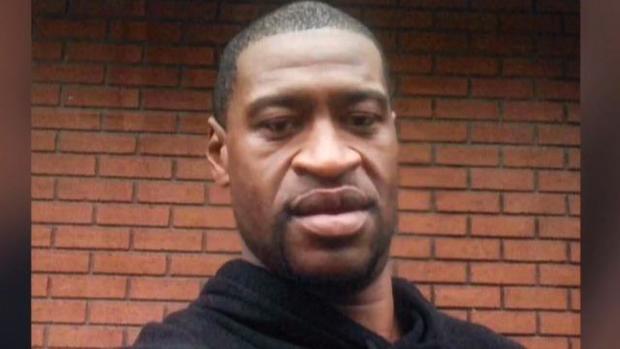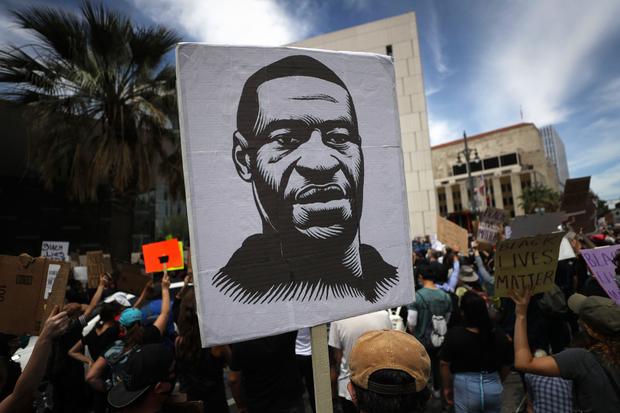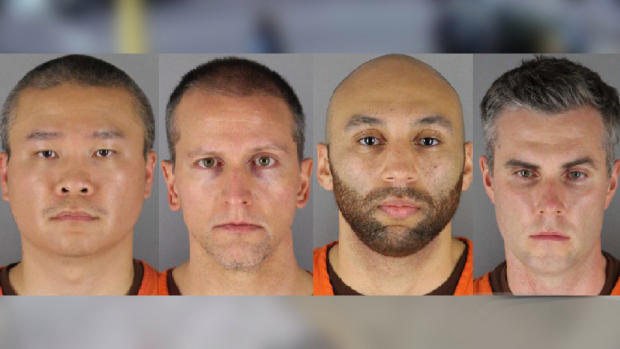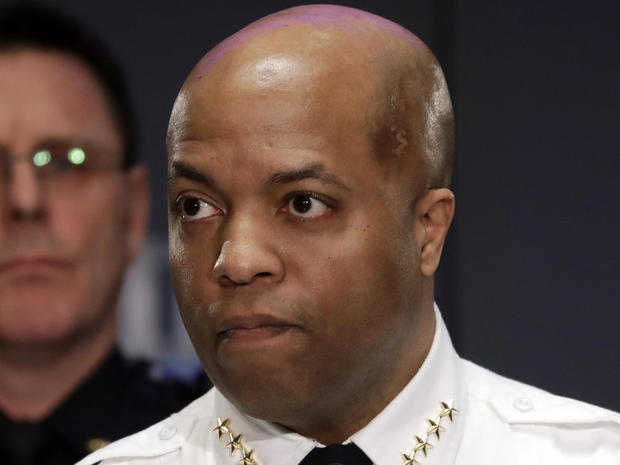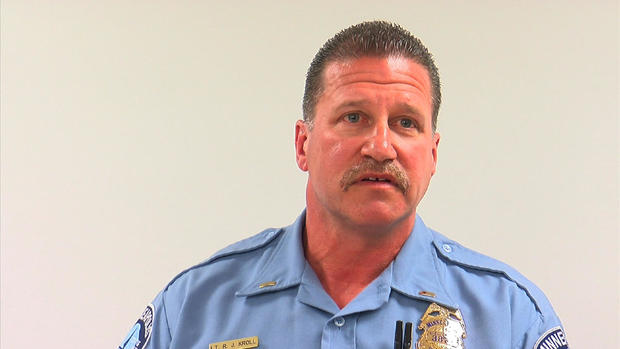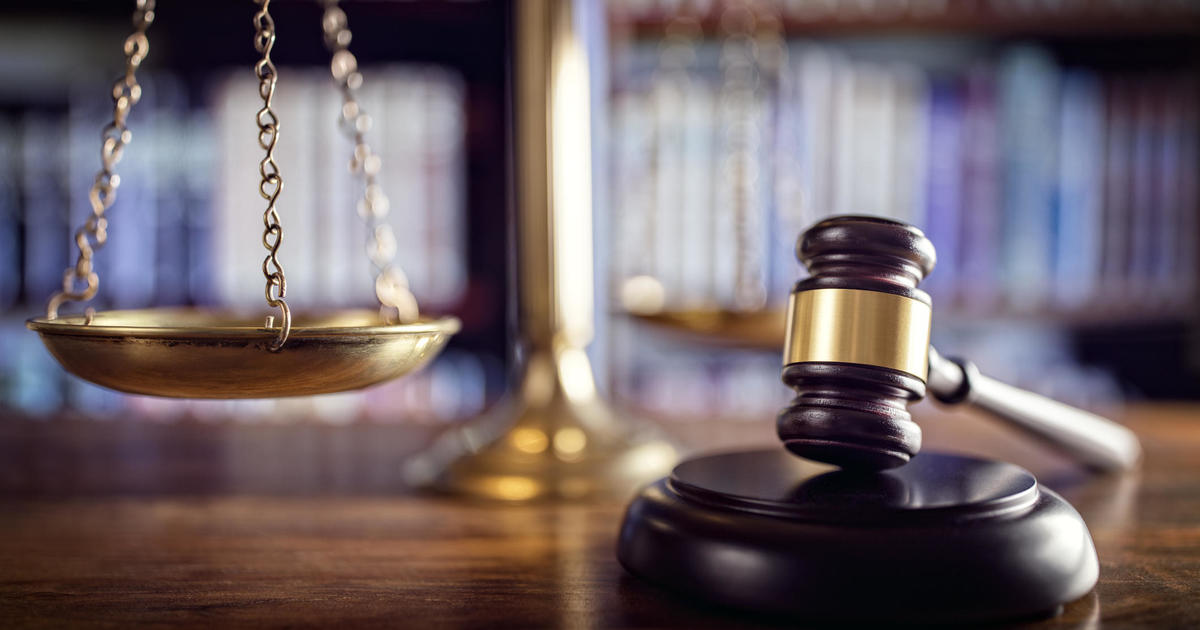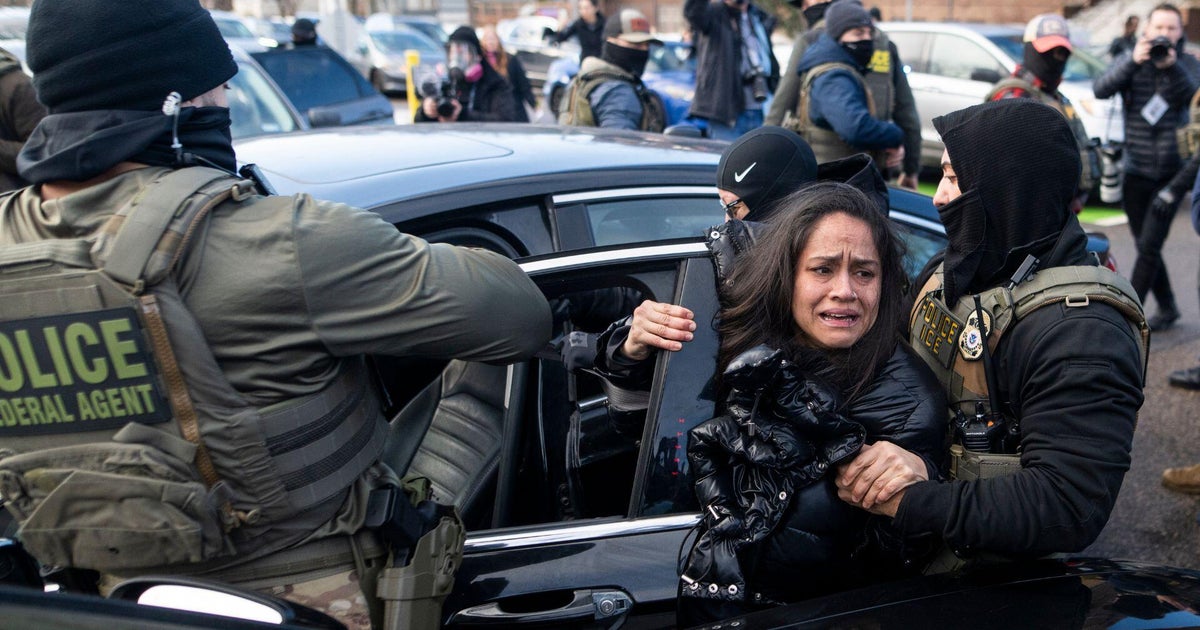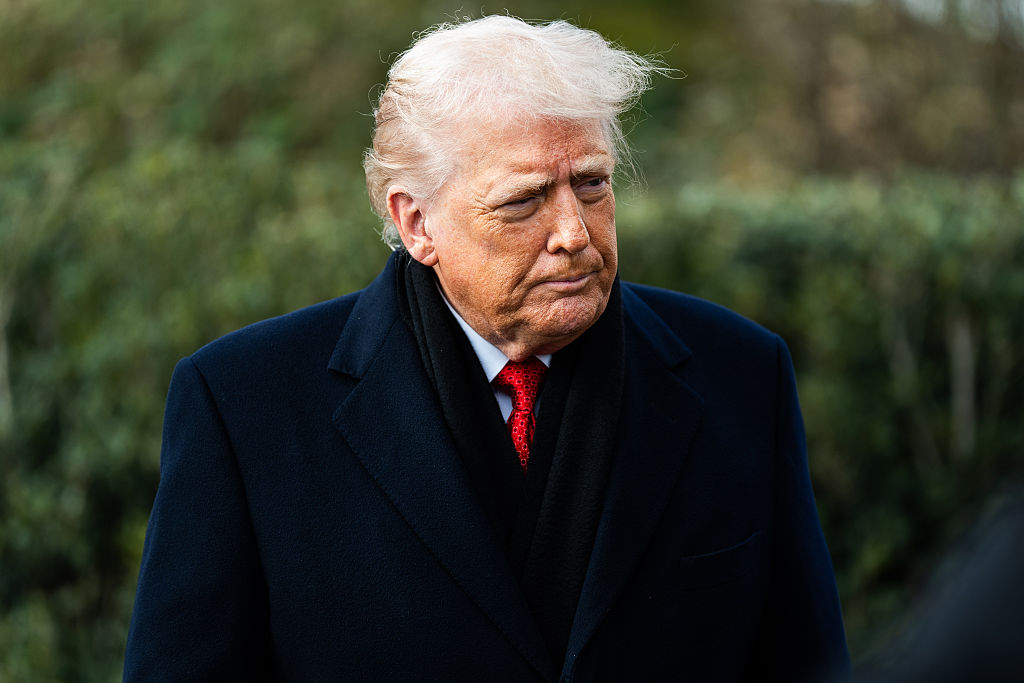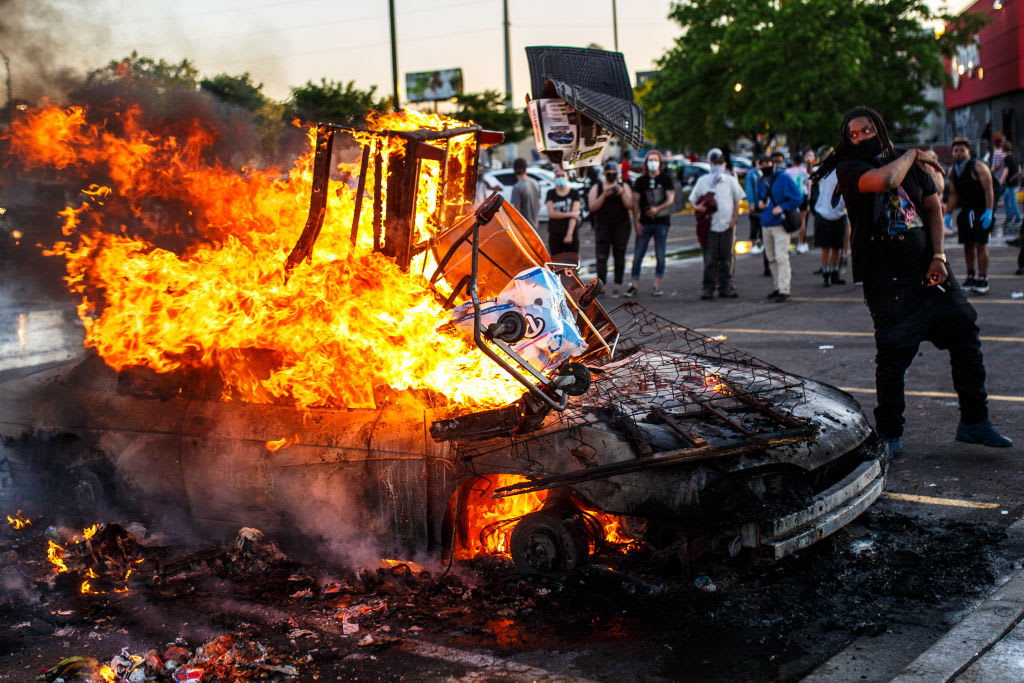Minneapolis Police Department to ban chokeholds amid push for more reform
The City of Minneapolis will ban the use of chokeholds by police officers under an agreement with the state Human Rights Department. The pact outlines interim police reform measures in advance of a long-term state civil rights probe stemming from the death of George Floyd.
The City Council is expected to approve the agreement, which will be enforceable in court, on Friday, reports CBS Minnesota.
The interim agreement also requires officers to intervene if they see another officer using any unauthorized use of force — including chokeholds or neck restraints — or be subject to the same discipline as if they had engaged in the violation themselves.
Minnesota Governor Tim Walz announced this week that the Minnesota Human Rights Department is investigating whether the Minneapolis Police Department has a pattern of discriminating against people of color. As calls for police reform resound across the nation in the wake of Floyd's death, officials in Minnesota have promised the state investigation will lay the groundwork for meaningful change. While advocates hail the move to "open the books" on the department and pinpoint needed policy and practice changes, they say addressing racism within the ranks will require intense scrutiny of the department's culture.
Attorneys for Floyd's family this week said the department is as much to blame for Floyd's death as Derek Chauvin, the white Minneapolis officer seen pressing his knee into Floyd's neck for more than eight minutes as the handcuffed black man begged for air, and the three other officers who didn't intervene. Chauvin has been charged with second-degree murder, and the three other officers are now charged as accomplices.
"The Minneapolis police department had opportunities — not only on the day this happened, but for years and years, to eliminate the institutional bias and racism against people of color," attorney Antonio Romanucci said on Tuesday. Romanucci spoke as the family announced the results of an independent autopsy that showed Floyd was asphyxiated by sustained pressure by the officers' knees on his neck and back, restricting his breathing and blood to his brain.
"What this really was was the weight of the Minneapolis police department on George's neck," Romanucci said.
An autopsy by the Hennepin County medical examiner found Floyd suffered cardiac arrest while being restrained. Though the autopsies differed on details of cause of death, both ruled the manner of death a homicide.
"It was wrong — period"
The department's policy allowing neck restraints and chokeholds under certain circumstances has drawn increasing scrutiny in the wake of Floyd's death, and calls are growing to ban chokeholds in jurisdictions nationwide. The Minneapolis policy describes neck restraints as a "non deadly force option," defining it as "compressing one or both sides of a person's neck with an arm or leg, without applying direct pressure to the trachea or airway (front of the neck)." Its use is allowed with "intent to control" a person or with the intent to render them unconscious by "applying adequate pressure."
The department also allowed the use of chokeholds, defined as "applying direct pressure on a person's trachea or airway (front of the neck), blocking or obstructing the airway" — as a deadly force option. The interim agreement will "prohibit the use of all neck restraints or chokeholds for any reason," and requires the policy to be amended in 10 days.
Policing experts say neck restraints, chest pressure and chokeholds can all restrict a person's breathing and blood flow to the brain. That can result in death, such as in Floyd's case and in the 2014 police killing of Eric Garner in New York City, where the NYPD had already banned chokeholds. Both Garner and Floyd could be seen on disturbing videos pleading with officers that they couldn't breathe, and "I can't breathe" has become a rallying cry of protesters across the country who are calling for an end to police brutality against black men and women.
Romanucci, the Floyd family attorney, faulted the Minneapolis department for not properly training officers about the dangers of neck restraints. Minneapolis' policy allows the neck restraint only against someone who is actively resisting. Floyd, lying prone in handcuffs, was not.
Chauvin's actions have drawn widespread outrage and condemnation from advocates and the law enforcement community alike. The Minnesota Board of Peace Officer Standards and Training, the licensing and regulatory board for peace officers in the state, said the video was disturbing and didn't reflect their training. And Minneapolis Police Chief Medaria Arradondo told a CNN reporter he fired the four officers because he considered their actions a "violation of humanity."
"It violates the oath of the majority of men and women who put this uniform on — it absolutely goes against it, it's contrary to what we believe in," said Arradondo, who is the department's first black police chief. "What occurred, to me, it's an absolute truth that it was wrong — period."
Departments across the country "will absolutely be re-examining their policies on this and their training to make it at the very least, at last resort," said David Harris, a University of Pittsburgh law professor who specializes in police conduct.
Some departments who classify neck restraints as deadly force or who ban the practice altogether have announced in recent days they will re-train their officers. One of those departments, Chicago, is also mandating that officers watch the disturbing video of Floyd's death.
"What took place in Minnesota this week is absolutely reprehensible and tarnishes the badge nationwide, including here in Chicago," incoming police chief David Brown said in a statement posted to Twitter. "I want to make it clear that this behavior is not acceptable in Chicago, and will not be tolerated under my command, and quite frankly has no place in law enforcement anywhere."
"This is something that will result in court action"
The move to ban chokeholds is only one element of reform needed at the department, advocates say. The community has been pushing for reforms for years, particularly after the 2015 killing of a 24-year-old black man, Jamar Clark, by two white officers. The incident strained police relations with the African American community, and despite days of protests, the officers were never charged. The next year, the department faced international scrutiny and questions about training when a black officer fired a shot from inside his cruiser and killed Justine Damond, a white Australian woman who had called police to report a possible rape. The Then-chief Janee Harteau stepped down amid the fallout. The officer, Mohamed Noor, was convicted in 2019 of third-degree murder and manslaughter.
The same year, a state working group convened to address police killings, and in February laid out a series of recommendations for reform. They included de-escalation training and the creation of an independent state prosecutorial unit to investigate officer-involved shootings and deadly uses of force — something an association of local prosecutors now says it will push lawmakers to enact. On Tuesday, Minnesota Human Rights Commissioner Rebecca Lucero said the human rights investigation will result in a formal agreement between the state and the department known as a consent decree that will be enforced by a court.
"This is not a report. This is something that will result in court action, and require change," Lucero said.
The department had already adopted a "duty to intervene" policy in 2016 in the wake of Clark's death, requiring officers to step in if another officer is using unauthorized force, and a requirement to uphold the sanctity of life. In Floyd's case, outrage that the officers disregarded both professional and moral obligations to intervene have led to "near universal call for reform," said R.T. Rybak, a former Minneapolis mayor.
"There's enormous outrage among those in the community that those officers would stand by and not stop a murder," Rybak said. "Their job is to prevent murders."
The interim agreement will add potential disciplinary action to the "duty to intervene" policy, and will also require crowd control weapons to be authorized by the chief, disciplinary decisions to be made within 45 days and put in place civilian audits of body camera footage.
"I believe this is the moment"
Structural change at the department will take time, but advocates and officials agree some near-term changes can have an impact. Justin Terrell, executive director of the governmental advisory group Council for Minnesotans of African Heritage, said he would like to see an "integrity standard" enacted that would ensure officers who violate core values — such as sanctity of life and duty to intervene — are immediately terminated. Terrell also suggested ramping up the authority of the civilian board that reviews police misconduct complaints to include subpoena power and trained investigators to clear a backlog of cases. According to city data, police misconduct claims hit a record high in 2018.
Terrell and others have called for broader representation of people of color and civilians on the Minnesota Board of Peace Officer Standards and Training, and to enhance the board's ability to identify cops with patterns of bad behavior and their authority to revoke their law licenses. The proposal would require passage by the state legislature, and is a part of a package of police reform bills announced this week by the state's People of Color and Indigenous Caucus.
But what will ultimately lead to change in Minneapolis, Terrell said, is not policies, but the officers' practices — something that is defined by the department's culture, he said.
"The only way to change culture is to take a hardcore look at yourself and lay everything bare — and I think that's why the [human rights] investigation is so important," Terrell said.
Arradondo told the Minneapolis Star Tribune in 2018 that the force was about 80 percent white and male, and Terrell says they largely live outside the city of Minneapolis, whose residents are about 63% white, 18% black and 10% Hispanic. The Twin Cities area suffers from some of the worst racial inequality in the nation in poverty, unemployment and education, an NPR investigation found. And a New York Times analysis this week found that Minneapolis police use force against black people at seven times the rate of whites.
Rybak, who led the city between 2002-2012 and is now the president of the Minneapolis Foundation, said he worked in his decade as mayor with four police chiefs on efforts to repair the fractured relationship with the community using efforts like community policing. But he said a small number of officers within the police department "create an us vs. them culture that rapidly deteriorates into overt racism."
Rybak and other community leaders have blamed Minneapolis Police Federation president Lieutenant Bob Kroll for stoking a toxic culture within the department and resisting reform. Calls are mounting for Kroll to resign after he sent a letter to union members in which he said the charged officers were terminated without due process and referred to Floyd as a "violent criminal" in referencing his previous criminal history. The letter also blasted state and local response to the protests, calling them a "terrorist movement," and accused local leaders of scapegoating the department. It did not discuss Floyd's death.
"For a man who complains so frequently about a lack of community trust and support for the police department, Bob Kroll remains shockingly indifferent to his role in undermining that trust and support," Minneapolis mayor Jacob Frey tweeted in response.
Harteau, the former chief, called Kroll "a disgrace to the badge" and called on him to resign. Speaking with CBS News' Jamie Yuccas, Harteau said she believes systemic racism is an issue in all police departments, but that problems in the Minneapolis police department start with Kroll.
Kroll could not be reached for comment.
Kroll's response stands in stark contrast to that of Arradondo, who has offered heartfelt apologies to Floyd's family, taking off his hat as he addressed them during a TV interview, and taking a knee as a hearse carrying Floyd's body passed by on the way to his memorial service Thursday.
Many in the community view Arradondo as a progressive chief with the ability to lead the department through the reforms ahead, Rybak said. Arradondo, who grew up in Minneapolis, was himself part of a group of officers that sued the department as an officer in 2007, alleging racist practices in the department. Arradondo said this week in a statement that the human rights investigation will help the department "take an honest examination at systemic barriers that have prevented us from reaching our greatest potential for those we serve."
"The sworn and civilian members of the Minneapolis Police Department remain steadfast in recognizing that service is honorable, and it requires building genuine and authentic relationships with all communities," Arradondo said. "The authority given to us by the community comes with great responsibility and obligation to always have their best interest at heart."
Rybak said he's hopeful that change can happen under Arrandondo's leadership.
"I believe this is the moment," Rybak said. "I believe there has been a sea change."
Editor's note: The Minneapolis Police Federation president, Lieutenant Bob Kroll, is married to Liz Collin, a reporter for CBS station WCCO-TV. Collin has not covered the department for more than two years.
